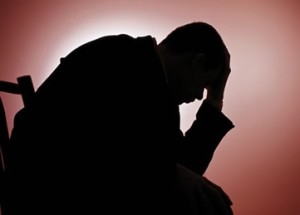Mr. John Doe lost his job at the age of 45 when his company recently retrenched him. He was very sad, as he had spent many years serving the company. He had difficulty finding a new job and it did not take long for him to fall into financial woe. Mr John began to stop stepping outside of his house. He spent his days in his room either crying or in a daze. He lost all interest in any activities. His appetite had also reduced significantly. He felt hopeless.
Psychiatry consists of the Greek words “Psych-” (soul) and “-iatry” (treatment); and it means “treatment of the soul”. It is a medical field that deals with mental disorders. When someone is suffering from a mental disorder, they often find that their quality of life deteriorates. A psychiatrist will be able to intervene by providing the necessary treatment to the mental disorder.
Mr John remained in that state for 3 weeks and it only got worse. He decided to go to a health clinic when he found that he had difficulties sleeping for a week. He was hoping to get some sleeping pills. Mr John was referred to a psychiatry clinic in a nearby hospital. An appointment was arranged.
A person can access psychiatry services in a government setting by getting a referral from their general practitioner or a primary care doctor. The doctor will first perform a check-up to ensure that the problem faced is not due to or part of a physical cause, e.g. hypothyroidism can sometimes cause depressive symptoms. If the doctor thinks that the person will benefit from psychiatric services, a referral letter will then be provided. Unless urgent, an appointment will usually be given at a later date.
At the psychiatry clinic, Mr John was attended by a medical officer. A detailed history was obtained from him. His case was discussed with a psychiatrist in the clinic. Mr John was subsequently diagnosed to be suffering from Major Depressive Disorder. He was started on treatment.
At the psychiatry clinic, a psychiatrist will evaluate the person seeking help, or a medical officer who will subsequently discuss the case with a psychiatrist. The evaluation will consist of a detailed history of the symptoms suffered, a physical examination, blood investigations and if indicated, psychological tests. This is necessary for diagnosing the mental disorder that the person is suffering. Once a diagnosis is obtained, treatment is discussed with the patient. As mental disorders can come in a wide variety of presentations, two people with the same diagnosis can have marked differences in their underlying symptoms and contributing factors. As a result, treatment is usually individualized specifically to the patient. Treatment may consist of medications, psychological therapy and/or other forms of supportive treatment. Unlike other medical fields, sudden improvement is rarely seen in psychiatry. Instead, changes are usually only observed after a few days, even weeks, after treatment initiation.
One week after starting medications, Mr John was found unconscious in his room by his family. An empty packet of medications was found by his side. Mr John had overdosed on his sleeping medication. He was immediately brought to the hospital. He was admitted to a psychiatric ward. However, his depression worsened and electroconvulsive treatment was started for him.
A majority of psychiatry consultations are done in a clinic setting. However, there are certain situations when hospitalisation is necessary for the patient. This situation arises when the patient presents with risk of harm either to themselves (e.g. suicide attempt) or to others (e.g. violent behaviour towards family members). In the ward, patients will be under close supervision to minimise the risk of harm. Tranquilisers will be provided if indicated. Medication will also be adjusted accordingly. A typical hospital admission usually last from a few days to 1-2 weeks. Unfortunately, the risk of harm is sometimes very high or oral medication does not seem to improve the patient’s condition. When this happens, electroconvulsive therapy (ECT) might be useful for the patient. Unlike what was commonly portrayed in movies, ECT is actually a safe and very effective treatment. The procedure is usually discussed with the patient, or if unable, with the patient’s next-of-kin before being carried out.
Mr John recovered after 2 weeks of hospital stay. He was continued on medications and also started seeing a psychologist for therapy.
Due to the nature of the illness and treatment, multiple follow-ups are usually necessary. Treatment will also be adjusted accordingly. The general rule is that when well or improving, the period between each follow-up gets longer. They can be as long as one follow-up every six months. Once a person achieves remission for an adequate duration, the treating doctor can stop treatment and follow-up.
Mr John recovered from his depression and treatment was eventually stopped.
The Malaysian Psychiatric Association provides a thorough FAQ for further information at http://www.psychiatry-malaysia.org/listcat.php?cid=11&all=Y
Dr. Eugene Koh (MB BCh BAO, Penang Medical College) is a psychiatric trainee lecturer in a local university.
[This article belongs to The Malaysian Medical Gazette. Any republication (online or offline) without written permission from The Malaysian Medical Gazette is prohibited.]


